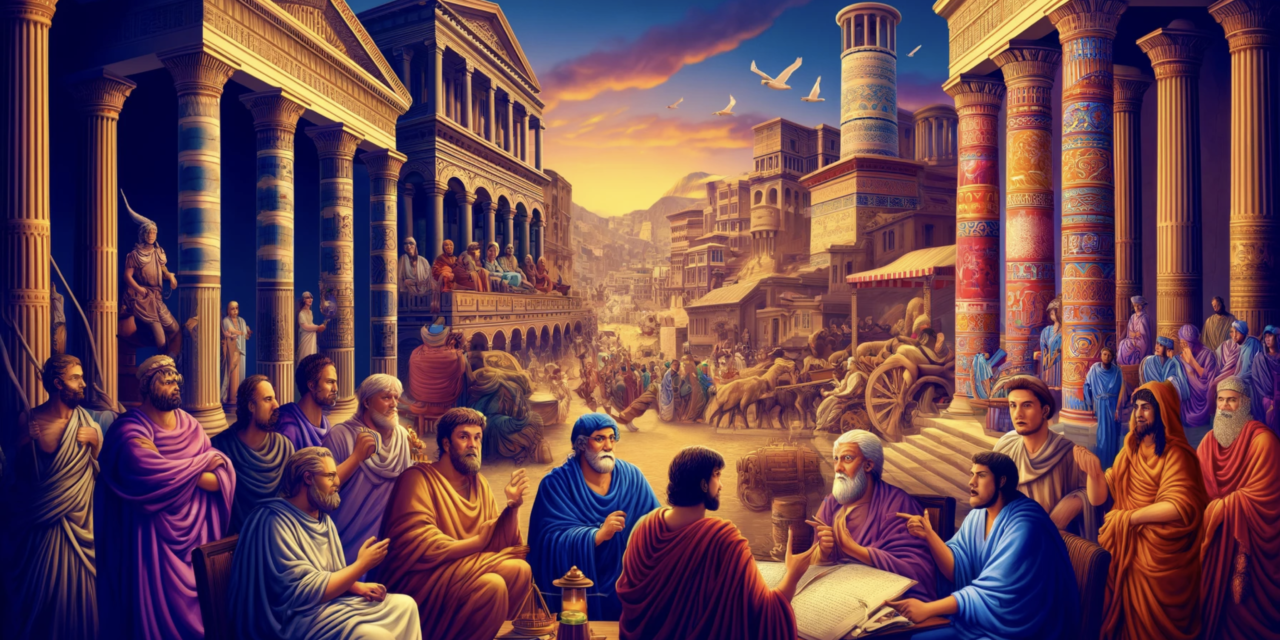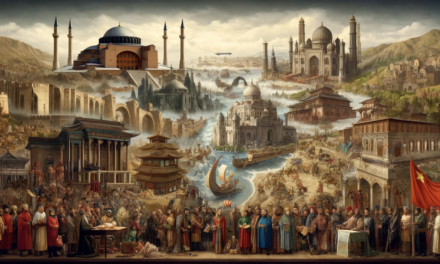Introduction
The historical narrative of Western intellectual tradition often emphasises Greek philosophy, Roman legalism, and Judaeo-Christian morals as foundational pillars. However, this account might overlook a monumental figure whose conquests reshaped the ancient world: Alexander the Great. Beyond his military achievements, Alexander’s era marked the beginning of the Hellenistic period, which played a crucial role in blending Eastern and Western cultures. This synthesis not only facilitated the rise of cosmopolitan societies but also set the stage for significant advancements in science, technology, and moral philosophy.
Alexander’s Vision: A Fusion of Worlds
Alexander’s conquests extended from Greece through the Persian Empire, reaching the fringes of India. Unlike many conquerors, Alexander adopted a unique approach towards the conquered lands. He did not seek to merely impose Greek culture but aimed to amalgamate it with the local traditions. This vision gave birth to the Hellenistic world, characterized by thriving new cities such as Alexandria in Egypt, which became the linchpin in this cultural and intellectual melding.
The Hellenistic Influence on Cosmopolitan Ideals
The new cities founded by Alexander and his generals were not just political centres but melting pots of Greek, Persian, Egyptian, and later Indian influences. These cities fostered a new cosmopolitan ethos, which valued diversity and encouraged the exchange of ideas. The famous Library of Alexandria and the scholarly institutions that flourished there are prime examples of how Hellenistic culture promoted a global exchange of knowledge.
Laying Foundations for the Silk Roads and Islamic Science
The infrastructure and networks established during Alexander’s reign and continued by his successors facilitated the later development of the Silk Roads. These routes were not only commercial lifelines but also channels for intellectual exchange. Centuries later, these pathways enabled the flow of Greek philosophical and scientific texts to the Islamic world. Islamic scholars, inheriting and expanding on this knowledge, played a pivotal role in preserving and enhancing the scientific knowledge that would later spark the Renaissance in Europe.
Cultural Synthesis in Judea and the Rise of Christian Ethics
In what later became the Roman province of Judea, the confluence of Jewish tradition with Hellenistic and Roman influences created a fertile ground for new ideas. Within this hybridized cultural backdrop, Jesus of Nazareth preached his transformative ethical and moral doctrines. The spread of Christianity throughout the Roman Empire and beyond can arguably be traced back to the cosmopolitan and administrative infrastructures initiated by Alexander and his successors.
Alexander “the Great” and His Enduring Legacy
Calling Alexander “the Great” might seem typical for a figure of his military stature, but his greatness arguably extends far beyond the battlefield. His policies of cultural integration and his vision of a united East and West laid the groundwork for a shared world of mixed heritage, which influenced the scientific, cultural, and ethical development of the subsequent millennia.
Conclusion
While the Western intellectual tradition typically highlights both later and earlier figures and philosophies, acknowledging Alexander the Great’s contributions offers a more nuanced understanding of how deeply interconnected our modern world is with its ancient past. His legacy shows that the fusion of diverse cultures under his influence was not only a factor in creating a more integrated world but also in shaping the intellectual and ethical frameworks that define modern Western civilization. By recognizing Alexander’s role, we can appreciate the depth and complexity of these historical interactions and their lasting impact on today’s global culture.
Call to Action
Revisiting and revising our understanding of history is not merely an academic exercise; it is a way to recognize the complexities and the interconnected nature of our past. If we think of it, in the words of Andrea Wulf “not as a sequence of events and dates that sit neatly in a row, like pearls strung on a necklace, but as an interconnected web” it encourages us to think about how we can foster better integration and mutual respect in our increasingly globalised world. Let us draw inspiration from Alexander’s era to build a more inclusive and thoughtful society.
Terry Cooke-Davies
19th April 2024
Special thanks to the AI assistance provided by ChatGPT (4) from OpenAI in shaping this article.






